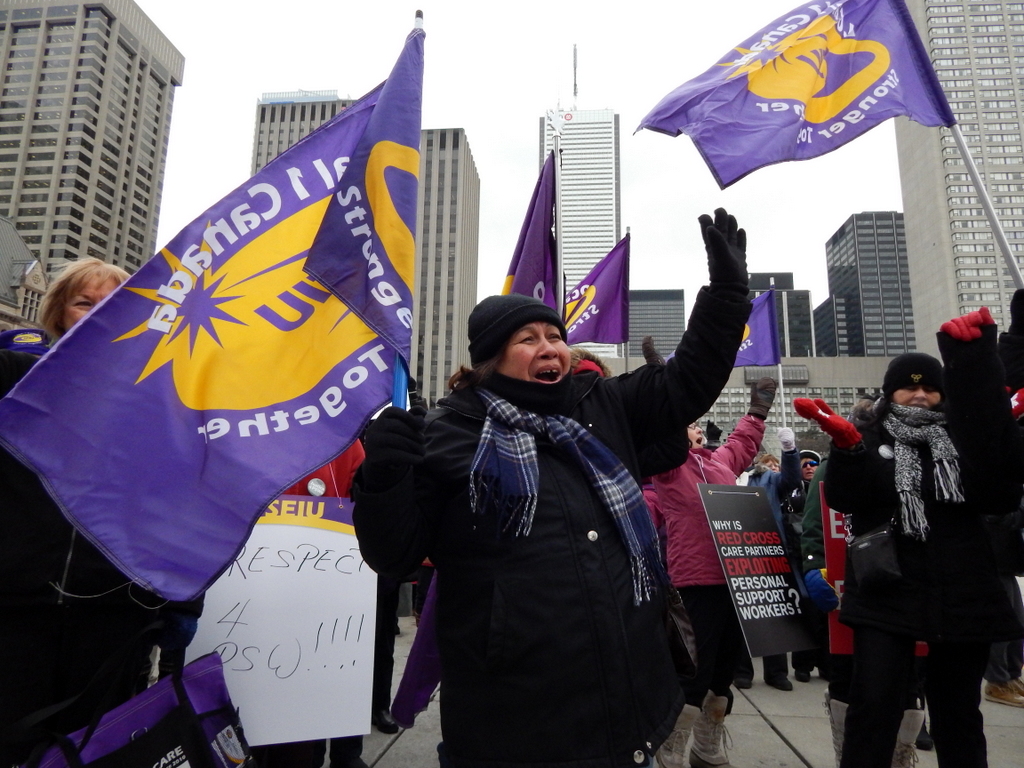He wanted to die at home. Terminally ill and dying of cancer, he begged his family not to put him in a hospital.
“I was afraid of that,” said Sharleen Stewart, president, SEIU Healthcare. “I didn’t know what it was like to watch my father die. To change his briefs. To bathe him.”
But when the Personal Support Workers (PSWs) came into her home, they reassured Stewart that tending to her father’s personal hygiene needs was their job.
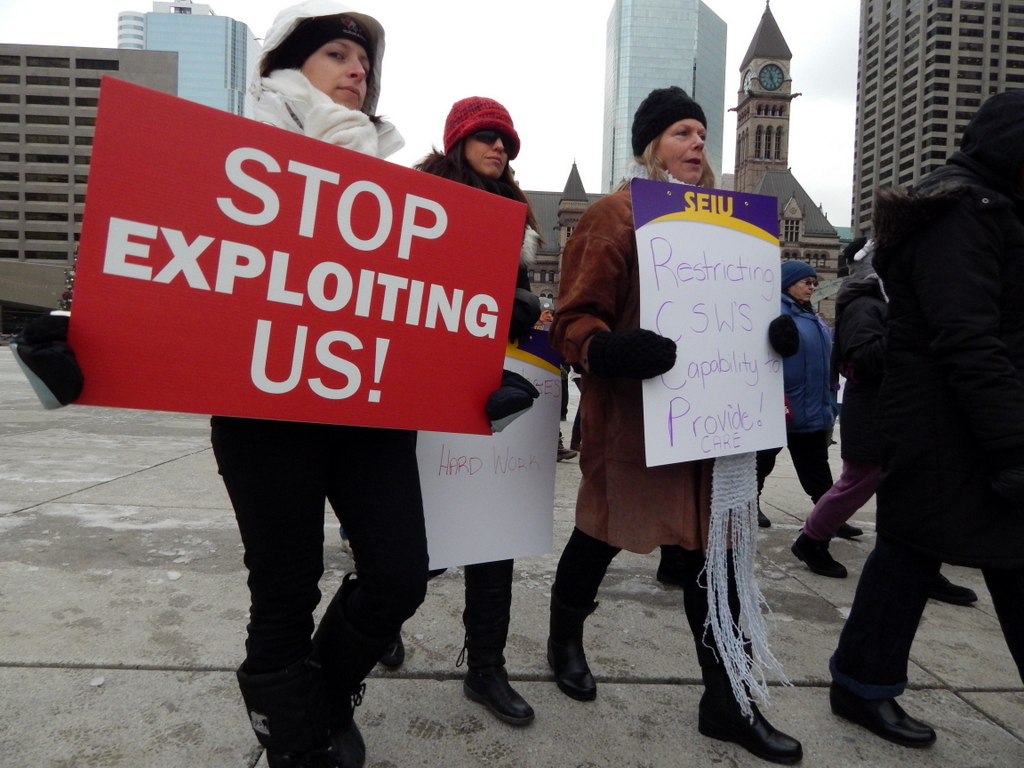
“They consoled me,” said Stewart.
“If I could pay you a million dollars for the peace of mind you gave me while my father was dying, when he died and when we buried him, I would give you that million dollars.”
Although Stewart hasn’t got that kind of money to give away, she won’t allow the PSWs in her union to be “roll over and be treated with contempt” ever again.
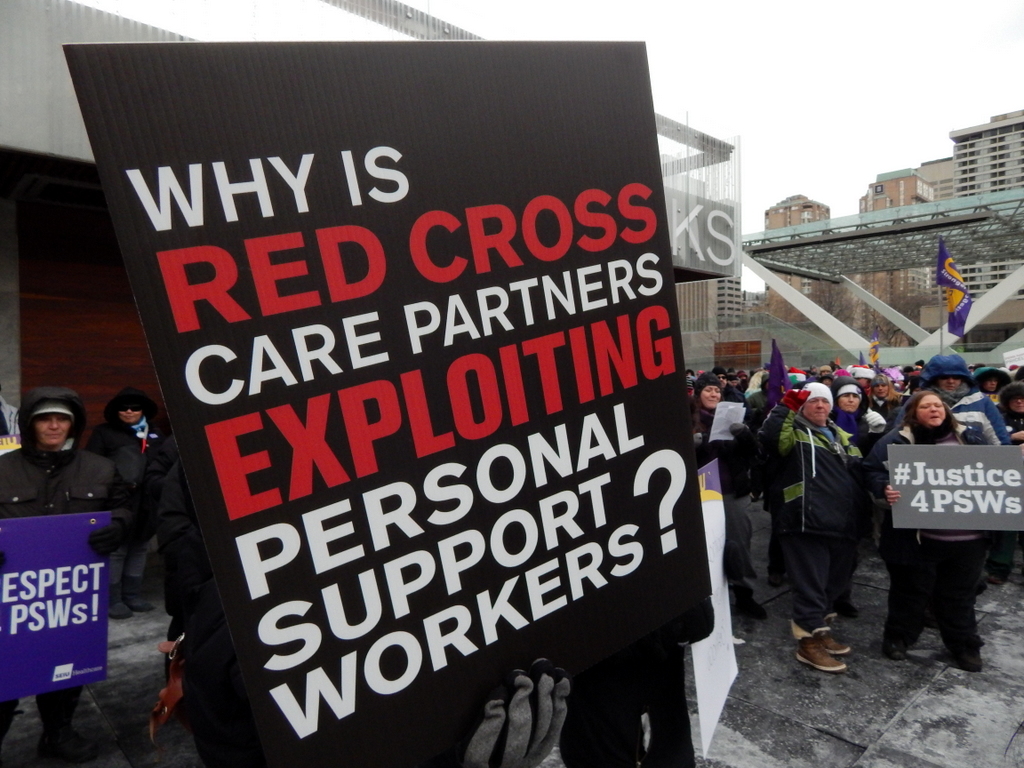
“Not this time,” chanted the crowd of 400 PSWs wrapped warmly in parkas, scarves and toques, standing outside the legislature at Queen’s Park on a bitterly cold Wednesday afternoon.
The day before, Stewart had given notice to Red Cross Care Partners, the largest home care agency in Ontario, that about 4,500 PSWs across Ontario would walk off the job on Wednesday.
They’d been without a contract since April and had been in a legal strike position for several weeks.

Recently, they’d rejected a tentative agreement with Red Cross.
“These workers are tired of being pushed around and taken for granted,” said Stewart, in a release on Tuesday.
“They are paid poverty-level wages of $15 an hour and are expected to pay for gas out of pocket when they drive long distances to make home visits.”
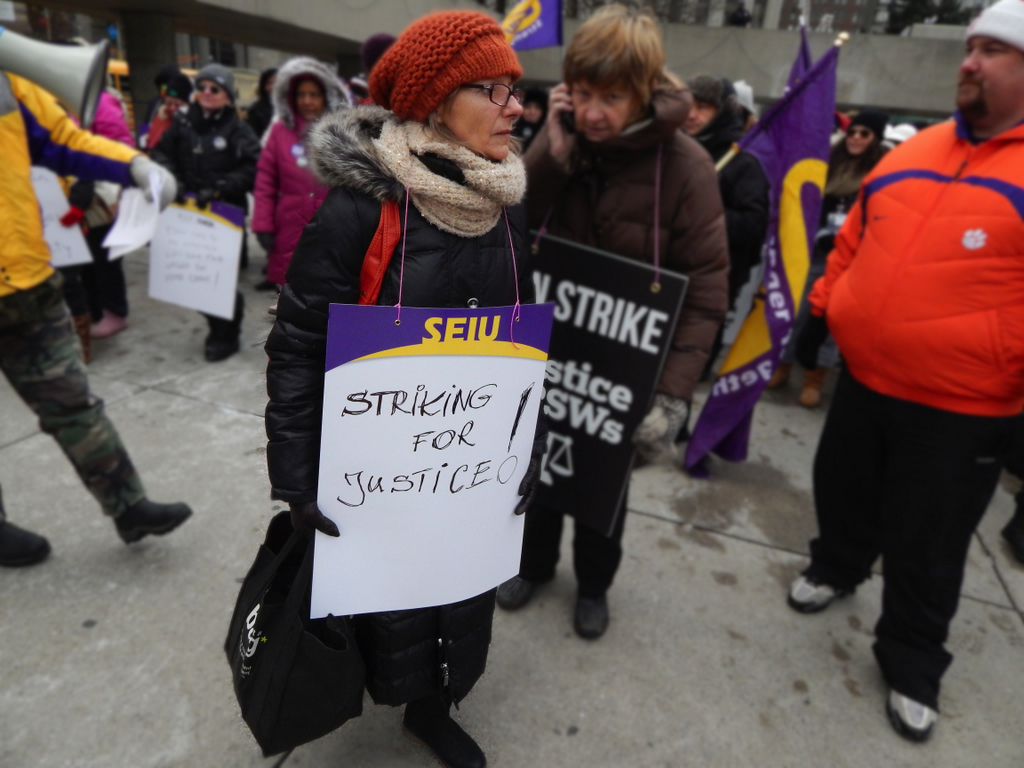
In the same release, the SEIU claimed that in the last two years PSW earnings have been reduced by 7 per cent as a result of a wage freeze combined with inflation and a “massive increase” in the price of gas.
PSWs don’t receive a mileage allowance to travel from client to client.
The strike has a lot of PSWs concerned about the kind of Christmas they will enjoy with their families this year.
“A lot of your children aren’t going to have the same Christmas as the CEO of Red Cross making $300,000 a year is going to have,” said Stewart.

The SEIU claimed that last year the CEO of the Red Cross Society was given a 9 per cent pay increase, bringing his salary to $297,000, which is 11 times the average salary of a PSW.
Stewart vowed that the SEIU would put everything it has into ensuring that the PSWs get “justice” in their next contract.
“And we will do whatever it takes to get the government and the employer to come to their senses and to join with us in building a home-care system where all PSWs are paid fairly and treated with respect and dignity,” she said.
“We will not settle for anything less.”

Just as they would not settle for anything less than the upmost respect and dignity they give their clients, allowing them to live in their homes for as long as they can.
“And it’s because of these PSWs that they are allowed to do that,” she said.
As hospitals, long-term care facilities, mental health and handicapped services offload more patients into the home-care system, it’s the PSWs that do more of the caregiving.
Mostly women. Often single women.
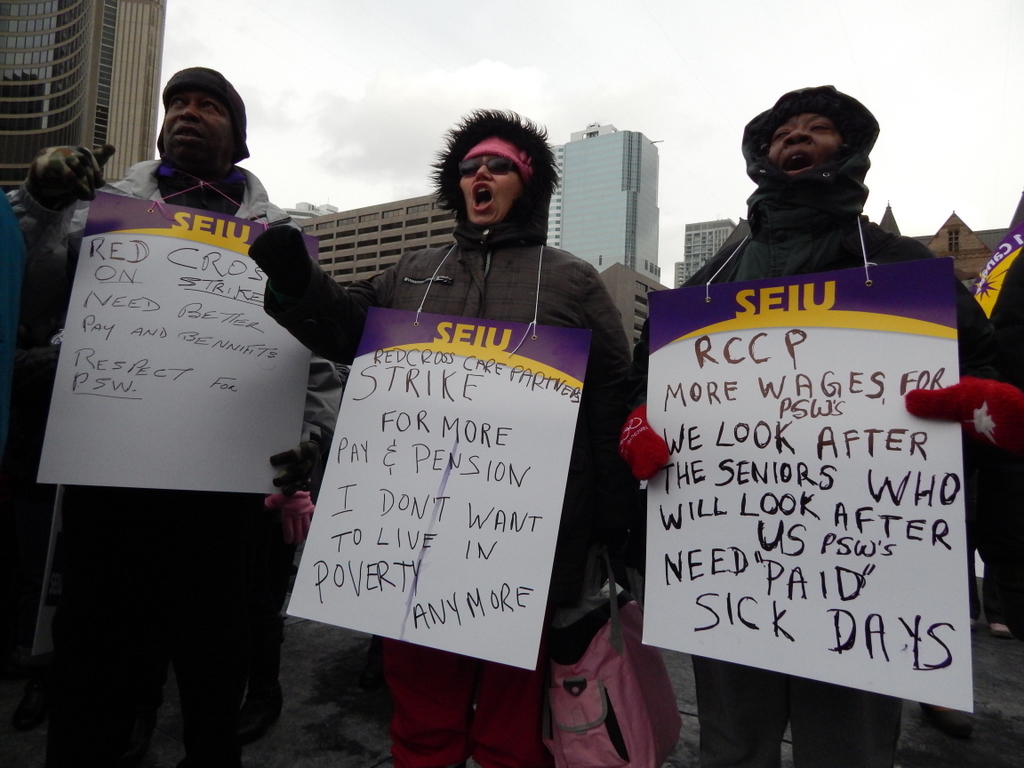
“These are the people that families depend on every single day,” said Stewart.
The people that comfort your loved ones when they’re scared. Calm them down when they’re agitated. Make sure they take the right medications in the right dosages at the right time. Attend the funerals when they pass away.
“It’s priceless what these people do for our society. And it’s bloody well time they get the respect and dignity they deserve.”
Teresa Clapham has worked for Red Cross for 33 years. She’s sat on three bargaining committees.
“Brought back contracts that I didn’t want to bring back,” she said. “They were voted in. It was a shock to me every time.”
So when she received the call that they were going out on strike, she was ecstatic.

“It’s time for us to unite as one voice,” said Clapham. “Not only for us but for all the PSWs. We work long and hard.”
They love their jobs and their clients. So the decision to go out on strike was a difficult one.
“You had no other choice,” said France Gelinas, NDP MPP Nickel Belt and Health Critic.
“Justice for PSWs should have happened years ago. Our home-care system is broken and needs fixing. You cannot have quality home-care when you don’t have continuity of care. You guys are the people who bring that quality of care. If we don’t give you a living wage, then it’s all for naught.”


